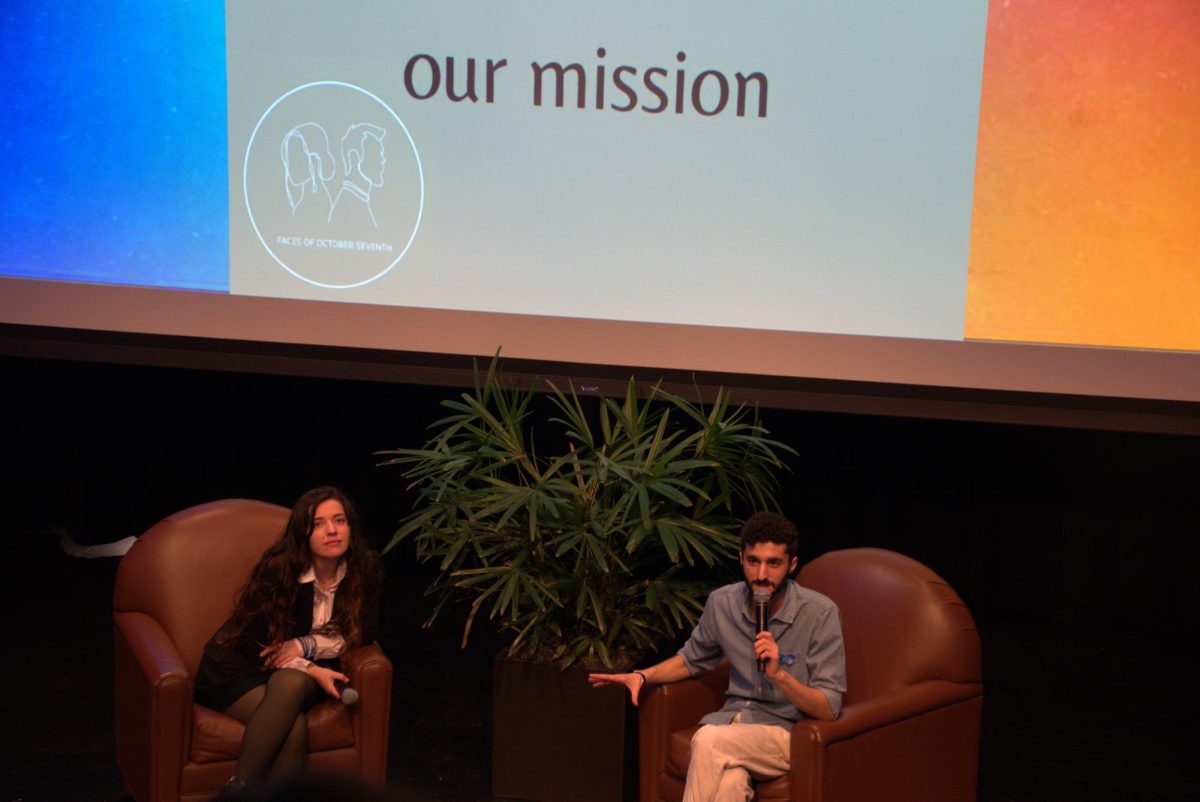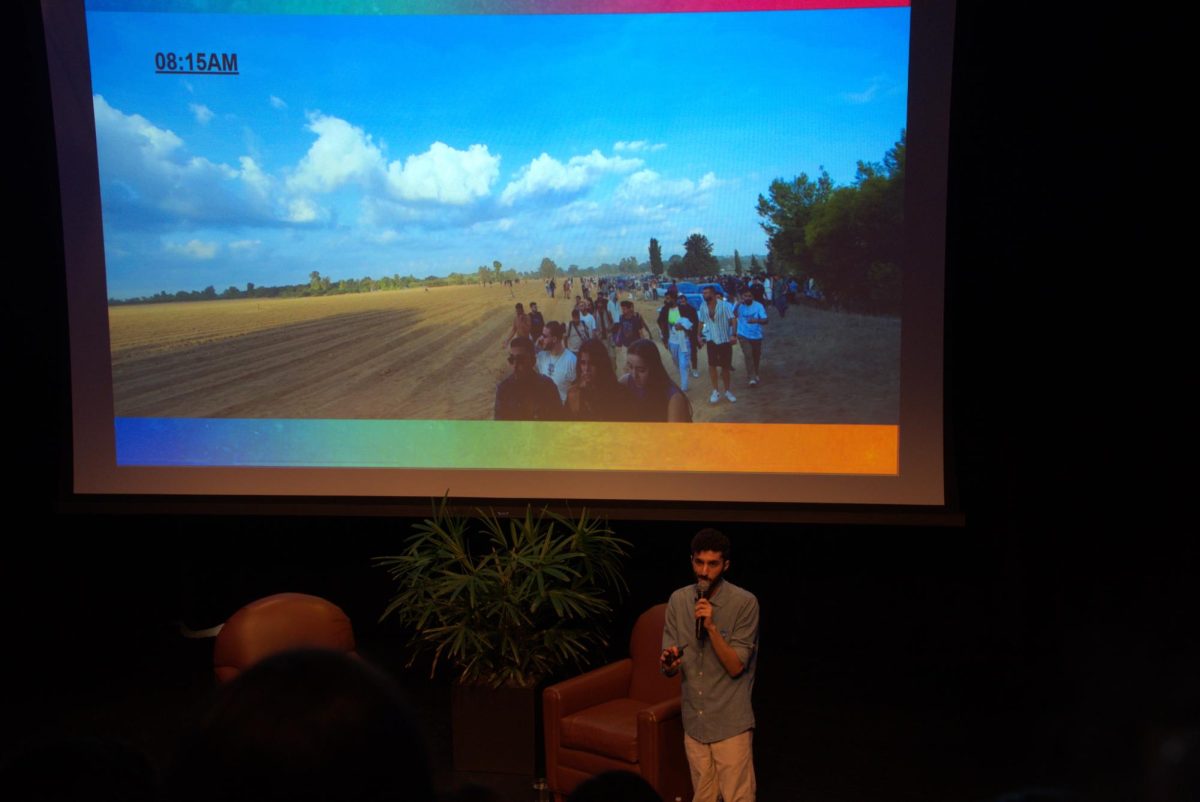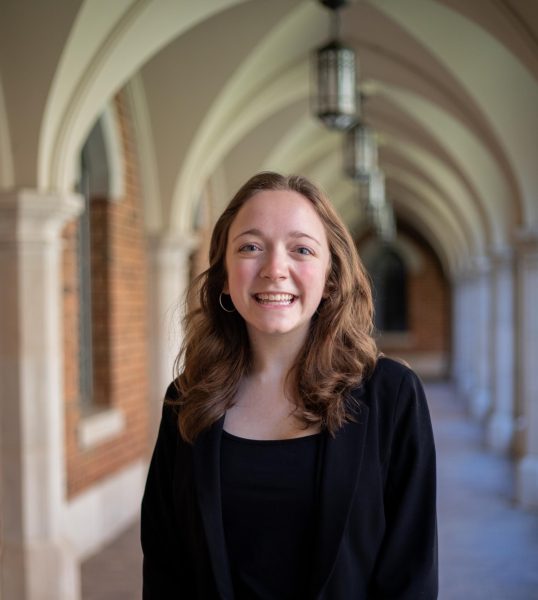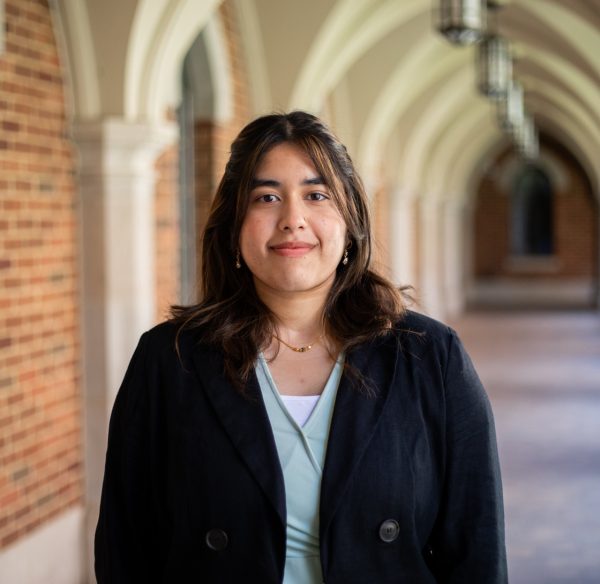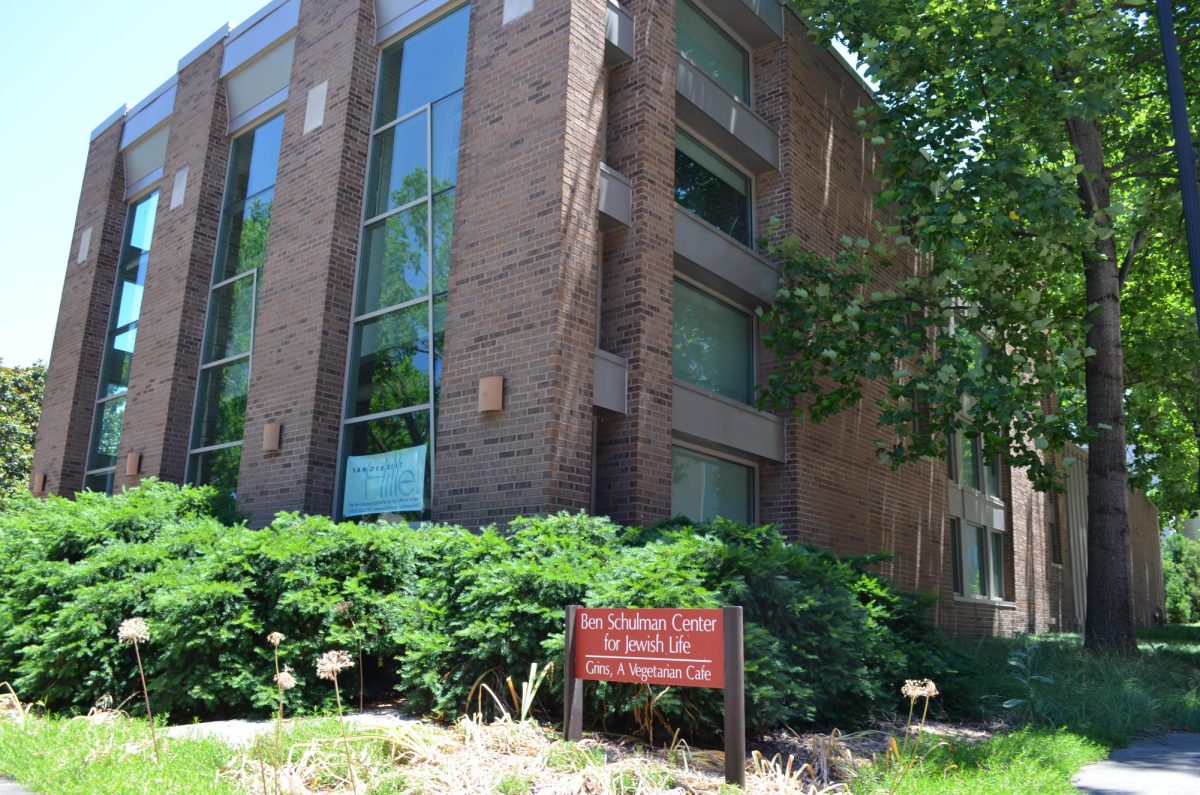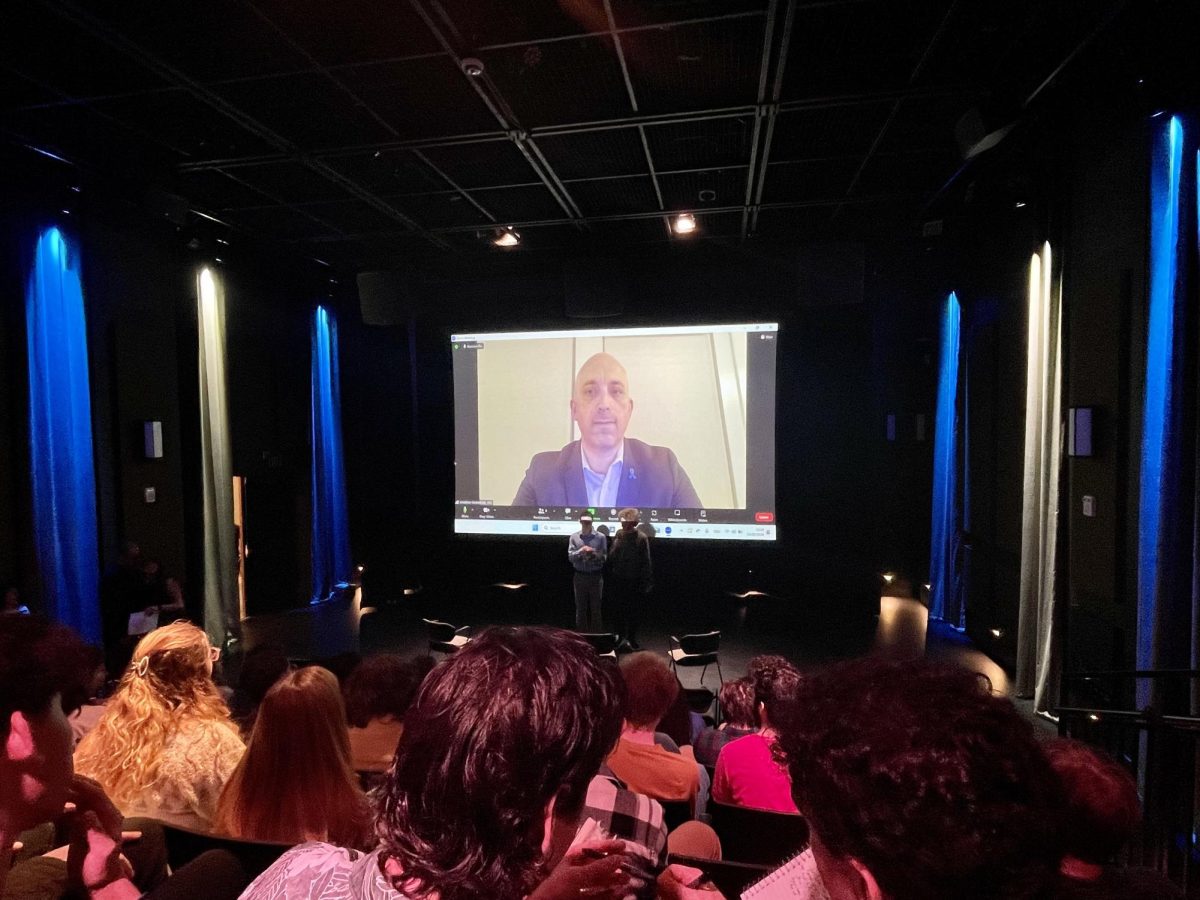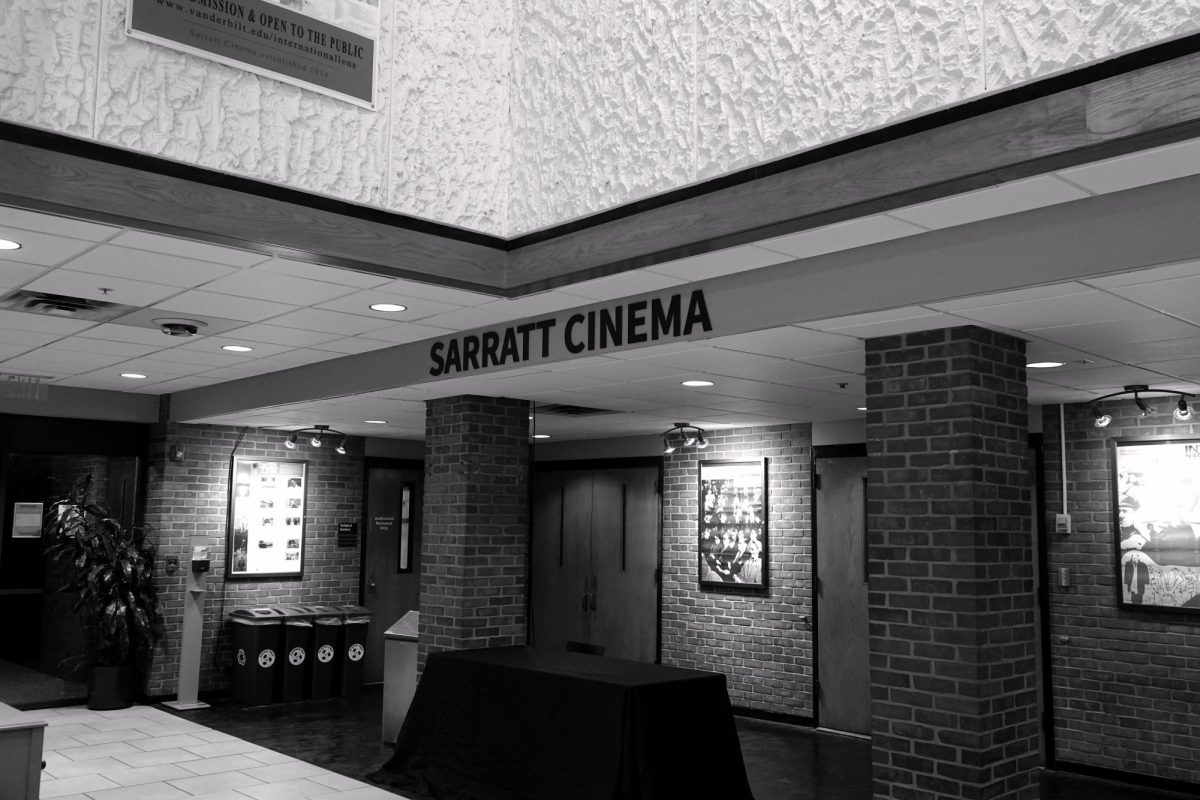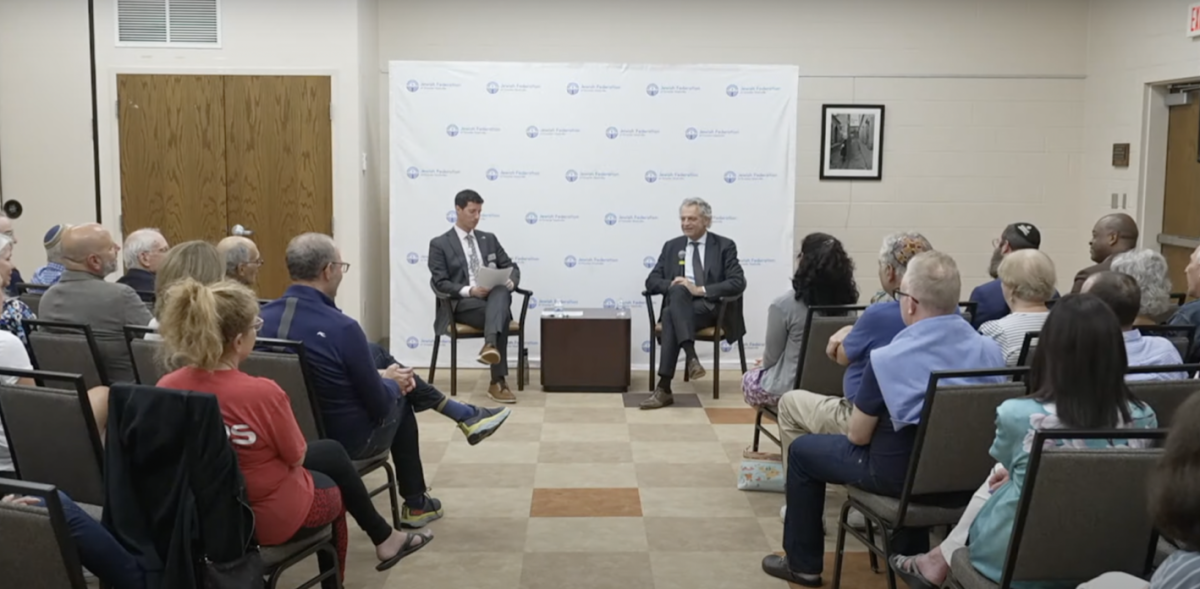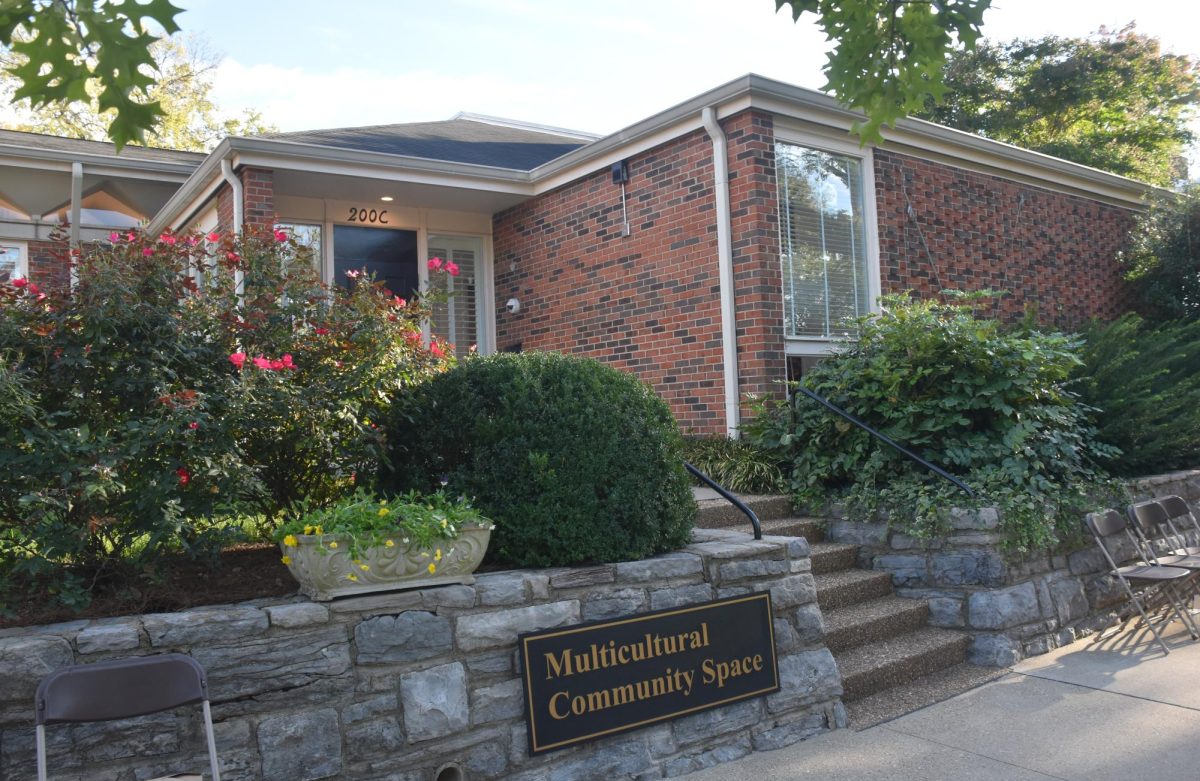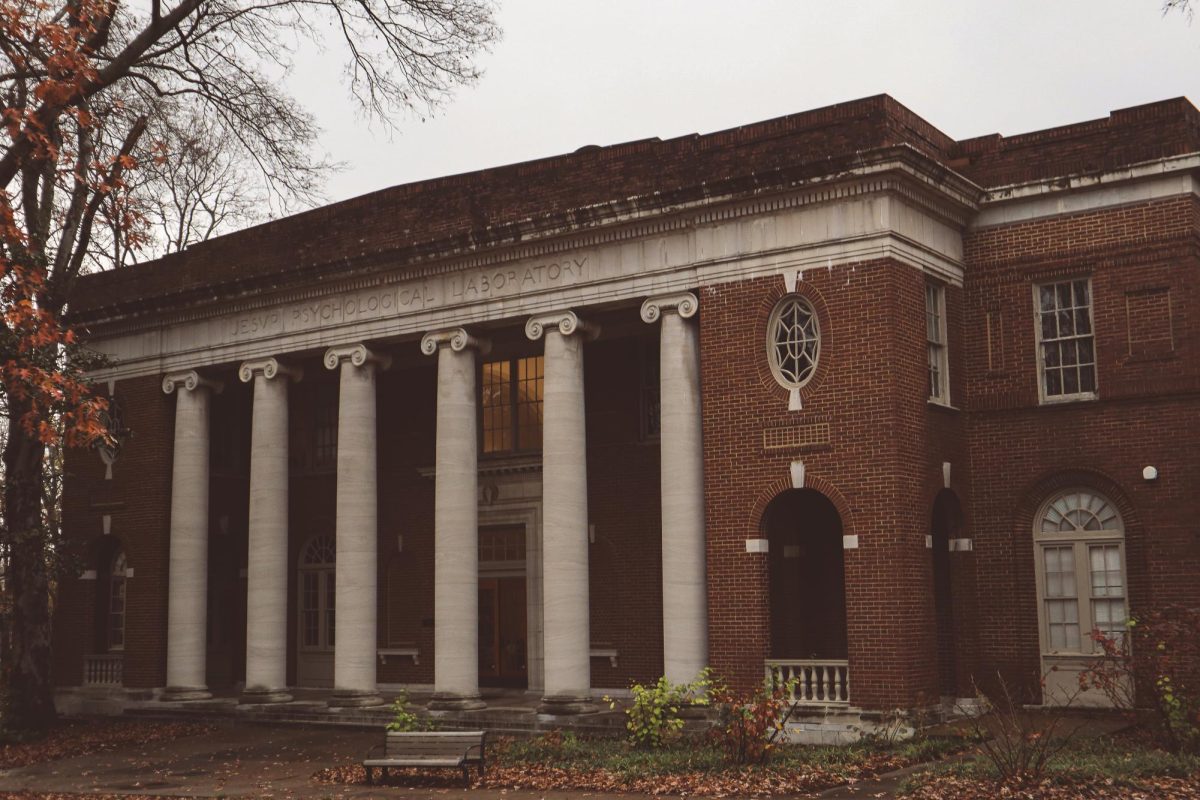Vanderbilt Hillel hosted a discussion with Shalev, a survivor of Hamas’s Oct. 7 attack on Israel’s Nova Music Festival, on March 5 at the Rothschild Black Box Theater. Over 100 students were in attendance to hear Shalev’s account of the attack and its consequences.
Shalev’s personal account of fleeing the Nova Music Festival on foot was followed by a Q&A session with the audience. Shalev was brought to Vanderbilt by an organization called Faces of October Seventh, which has been bringing survivors of Hamas’s attack to college campuses to share their stories.
Shalev’s account
The discussion began with Shalev recounting his story of Oct. 7. He first explained his past in the Israeli Defense Forces, in which all Israeli citizens who are Jewish, Druze or Circassian are required to serve, and his current study of music production, as well as his long-held love for the Nova Music Festival that he attended with a group of friends.
“That festival for us was like a union festival because we [my friends and I] hadn’t met each other in a long time,” Shalev said.
Shalev described being awoken by the sound of missiles and gunshots around 6:30 a.m. IST. A red alert was soon sent out and people started fleeing from the festival.
“I knew that sound [of missiles] because I served during Operation Guardians of the Wall, a small operation we had in Gaza,” Shalev said. “I stepped outside my tent, looked west and saw the sign of missiles.”
Lasting 11 days in May 2021, Operation Guardians of the Wall was an Israeli airstrike retaliation to Hamas and Palestinian Islamic Jihad rockets launched at Jerusalem in response to frustrations over the Israeli government’s eviction of Palestinians from areas of East Jerusalem and a raid by Israeli police on Al-Aqsa Mosque. Those killed included 13 people in Israel and 260 in Gaza.
Shalev and his friends were forced to abandon their car and flee on foot because they heard gunshots getting closer while they were stuck in a traffic jam. While running, Shalev said he got a call from his cousin who confirmed this situation was “unusual.” They only realized what the problem was when they heard a woman on the street shouting that there were “terrorists” on motorcycles.
“[My cousin said] ‘there is a very complicated situation now. You can’t go to any civilian place. You have to hide yourself. Don’t go to any kibbutz village. Don’t go to any roads, not even an army base. Nothing,’” Shalev said. “[He added] ‘If you can dig a hole and stay there, do that and don’t expect that someone will rescue you for at least 48 hours.’”
They ran almost four and a half miles to a farm where they encountered several Thai workers — 5,000 of which work as farmhands in communities bordering Gaza — from whom they requested water. At the farm, they met an Arab-Israeli man named Younis, who took Shalev and his friends to a nearby building for refuge.
After a few hours, one of the men shouted to warn of approaching gunmen, so everyone fled the building and crawled between the less than two feet that separated the building from the ground.
“We laid underneath the building in [pairs],” Shalev said. “We actually froze underneath the building because we had started to hear the terrorists talking with Younis.”
Shalev and his friends stayed under the building for what “felt like forever” as they heard the gunmen breaking the gate’s chains looking for the group. According to Shalev, Younis told the intruders that they were not at the farm. When the intruders left, Younis called two rescue cars that transported Shalev and his friends to a safer area. They safely made it home later that night.
“Younis is an Israeli-Muslim Bedouin, and he actually saved our lives,” Shalev said. “He is our guardian angel.”
Shalev ended his story with a video from a party celebrating Israel to share the message that no one person or situation should stop young people from enjoying their lives. He dedicated his lecture to his friend, Tiferet Lapidot, who was killed in the attack.
“The last thing I want to say is live your life like it’s the last moment because no one can guarantee your life forever,” Shalev said. “Love the people around you and show them kindness.”
Audience Q&A
The Q&A portion of the event was moderated by a representative from Faces of October Seventh. The first question came from a student who asked about Shalev’s military experience and if he felt that prepared him for Oct. 7, to which he responded “of course” — although not to the level of Hamas’s attacks. He said the automatic weapons used by Hamas were “very strange” as they were not used by the IDF when he served.
“I think my brain actually didn’t want to understand [the violence] and, at that point, I understood that was okay,” Shalev said. “And I think also in a physical way, to run eight kilometers, [my military training] really helped me.”
One student asked Shalev about his interactions with Younis and the other Arab-Israeli farmers who helped his group. The student cited “misconceptions” about Arab-Israelis and Jewish Israelis “hating each other” as the Arab population is a minority in Israel, albeit its largest. Shalev said he believes the lack of tension in his interactions on Oct. 7 resulted from a collective fear of Hamas, citing a Palestinian bus driver from East Jerusalem who was taken hostage at Nova.
“I hope that we will live together because Israel is their home like Israel is my home,” Shalev said. “But I think [the Arab-Israelis] also understood that Hamas is a terrorist organization — they were not fighting for freedom or anything like that.”
A student who attended the event, kept anonymous for safety and privacy concerns, expressed shock for the mundanity that had been experienced by the festival attendees moments before Hamas invaded, describing music festivals in the U.S. as “something we take for granted.”
“It’s crazy that they thought they were just having a normal day,” the student said. “I don’t know how I would have reacted in that moment, and it’s crazy how an Arab person helped them — there was comradery.”
Another student asked Shalev about how he maintained his positive attitude throughout the day of the attack, to which he said was “not sure” but knew he had to support those around him. He acknowledged that the first three months in the wake of Oct. 7 were “very tough” for his mental health.
“At first I was very nervous and afraid, and I think the moment we found the woman [on the street], I understood that I had to be there for someone else,” Shalev said. “That changed me.”
Other students inquired about Shalev’s personal journey with his mental health following this experience, as well as where the other men in his IDF reserve are now. To a question about how Israel is different after Oct. 7, Shalev said he believes there is a “national trauma,” but the tragedy strengthened the Jewish community.
“It was very traumatic for us. It is like someone entered your house and did what he wanted — that is a very easy way to describe it,” Shalev said. “Now I think, as Israelis, we are very used to that kind of thing, so we are trying to continue because we are very resilient, but it’s very hard for us to.”
Reflections on the event
A representative from Hillel, granted anonymity for safety and privacy concerns, expressed gratitude for the personal experience shared by Shalev.
“As our campus listened last night to Shalev’s survival story, we heard the lived experience of someone saved by the heroic efforts of a Muslim Israeli and whose life was forever changed by the terror of the Oct. 7 massacre perpetrated by Hamas,” the representative said in a message to The Hustler. “His words offered powerful context and moral clarity against the campaign of antisemitic denialism spreading across our community.”
According to The Washington Post, a small group of people, mainly Americans, deny reports of the Oct. 7 attacks, instead believing they were staged by the Israeli government as an excuse to invade Gaza, the hostages taken by Hamas were actually kidnapped by Israel or that the U.S. has been behind the entire conflict.
The representative also said they are enthusiastic about the event’s contribution to open dialogue on campus.
“As our Vanderbilt campus decides whether it wants to take steps that isolate and stigmatize the mainstream Jewish community, we can look to last night’s event as an affirmation of dialogue and open conversation in creating the type of campus community we all should strive to keep,” the representative said.
Senior Ryan Bauman, president of Vanderbilt’s Students Supporting Israel chapter, said he found Shalev’s first-hand account of Oct. 7 “phenomenal.”
“The story about Younis and the Arab-Israelis that saved [Shalev] and his friends is the whole key aspect of what Israel truly is — Israel is not just a place for Jews but a place for everyone that calls that place home,” Bauman said. “Shalev said that perfectly. I think no one could have said it any better.”











